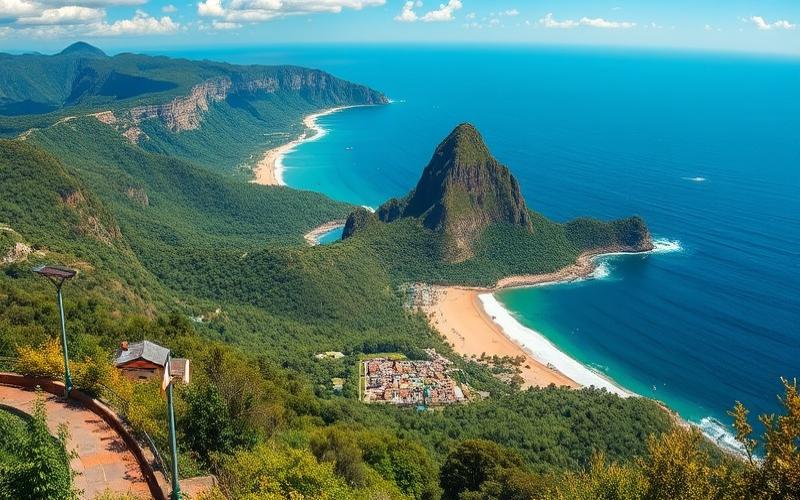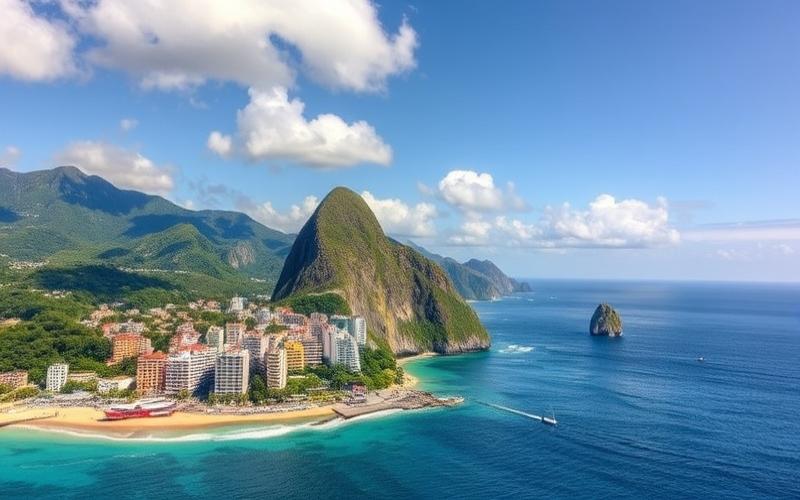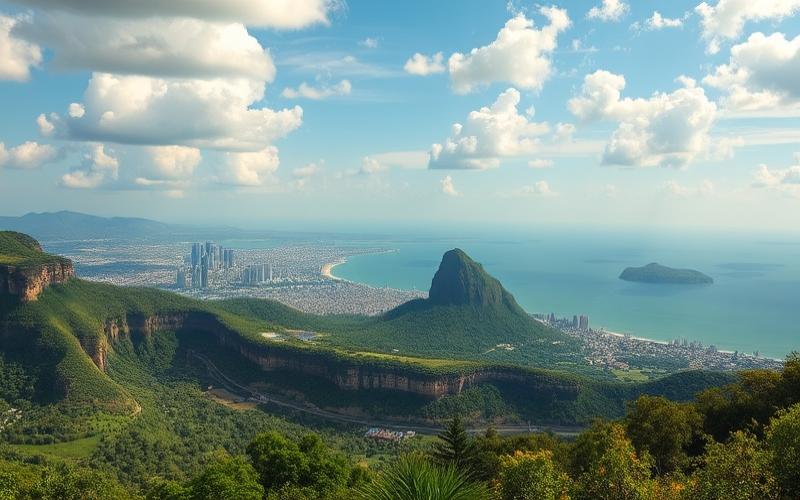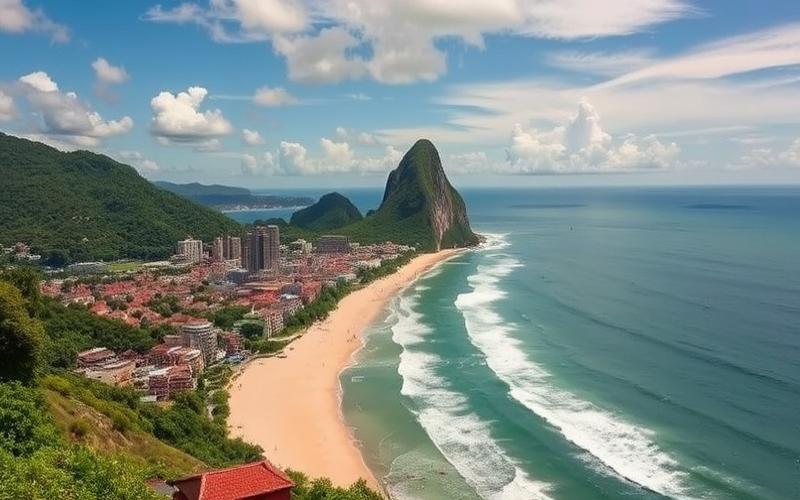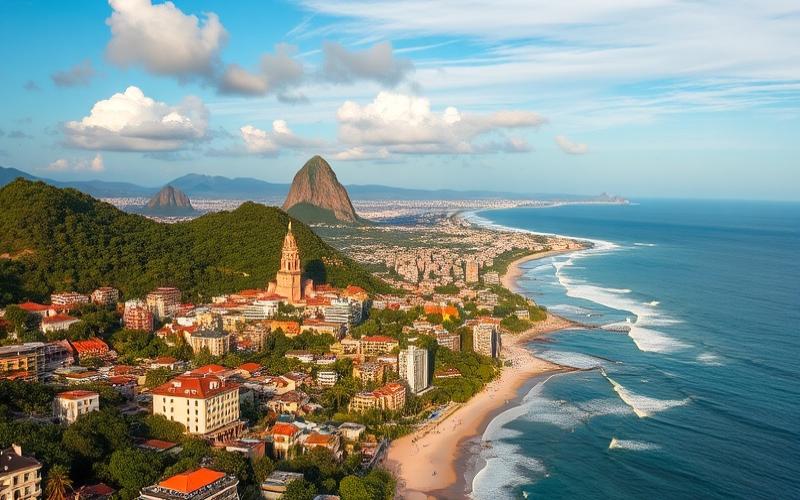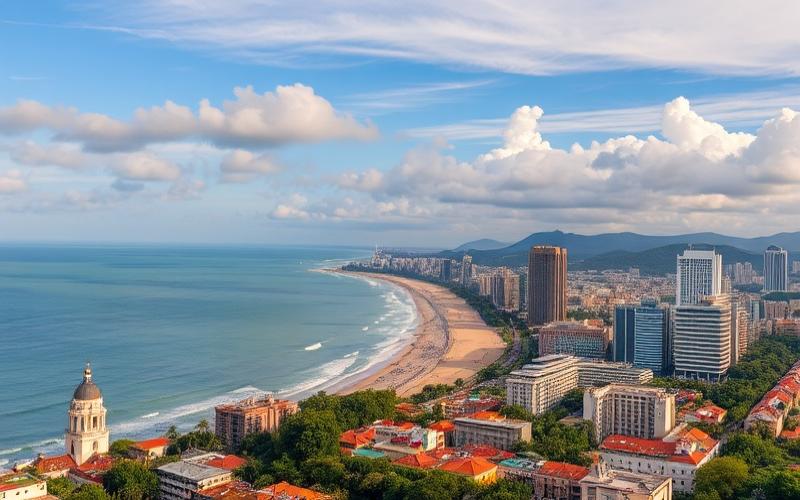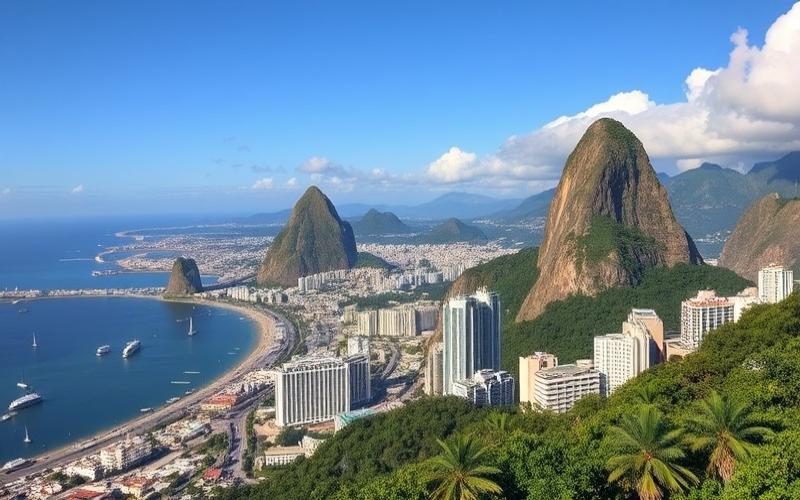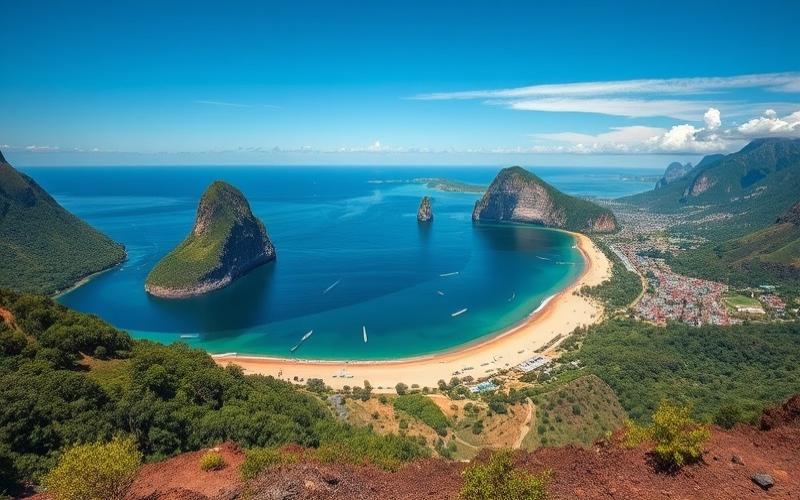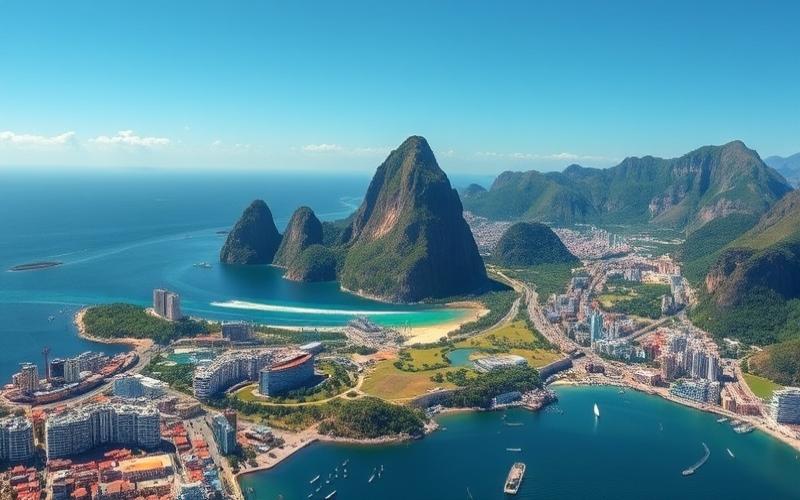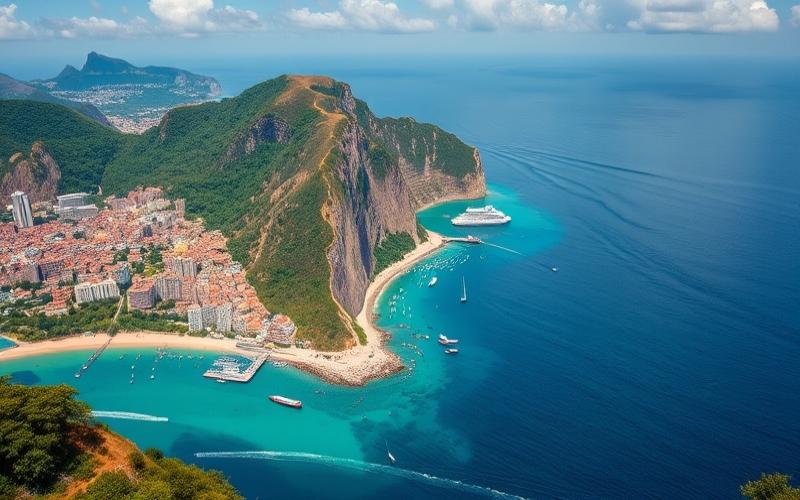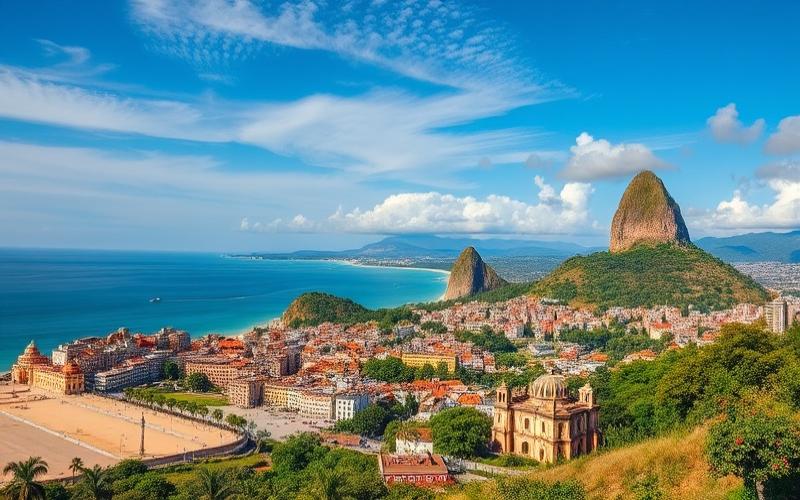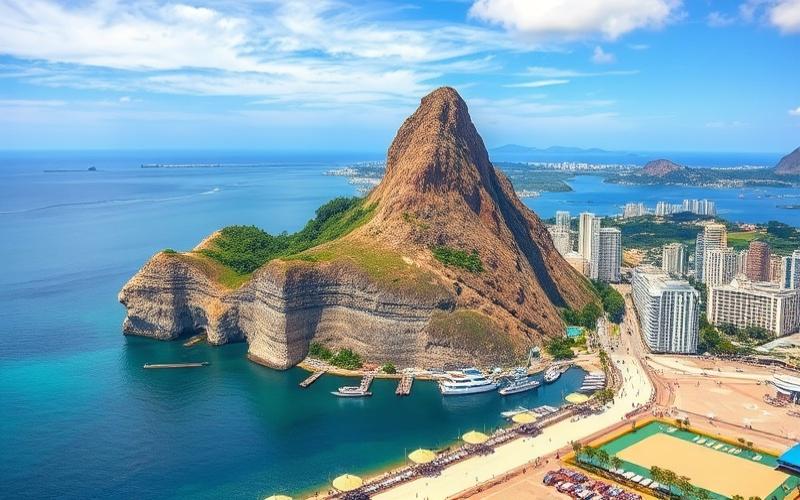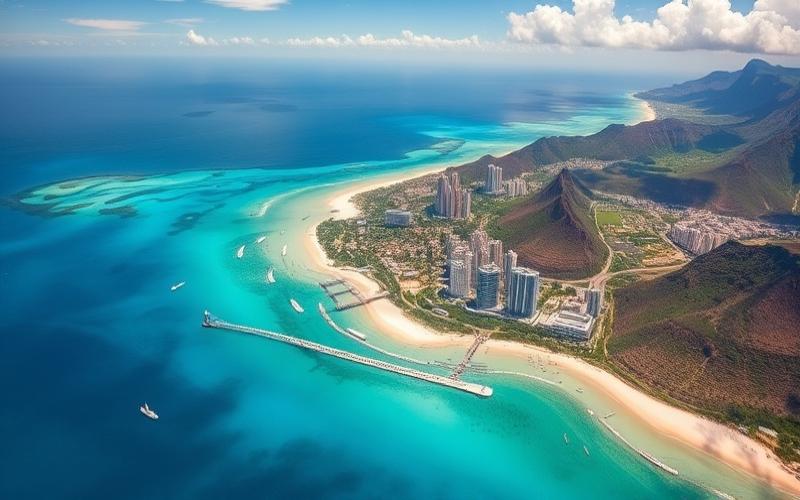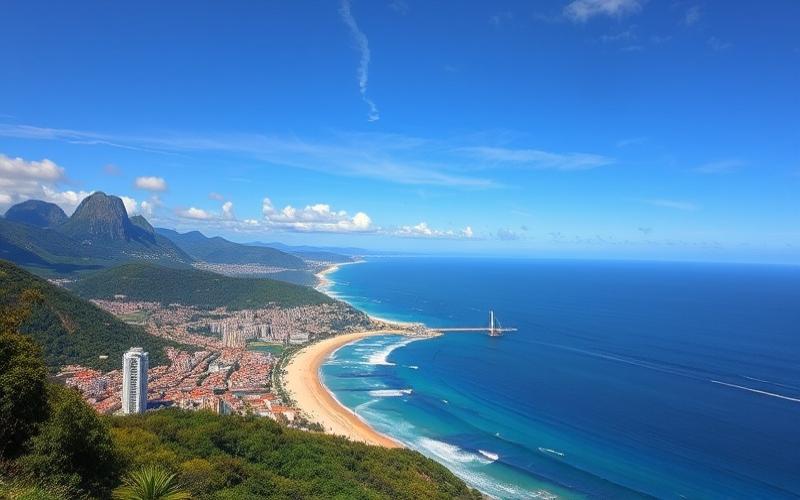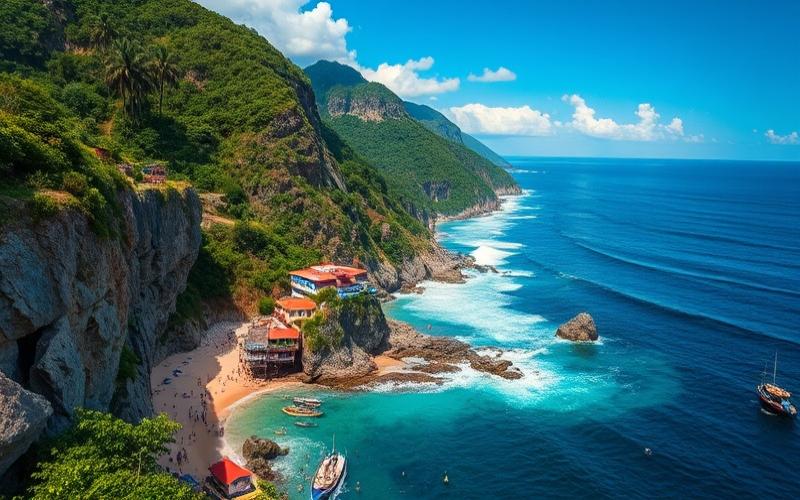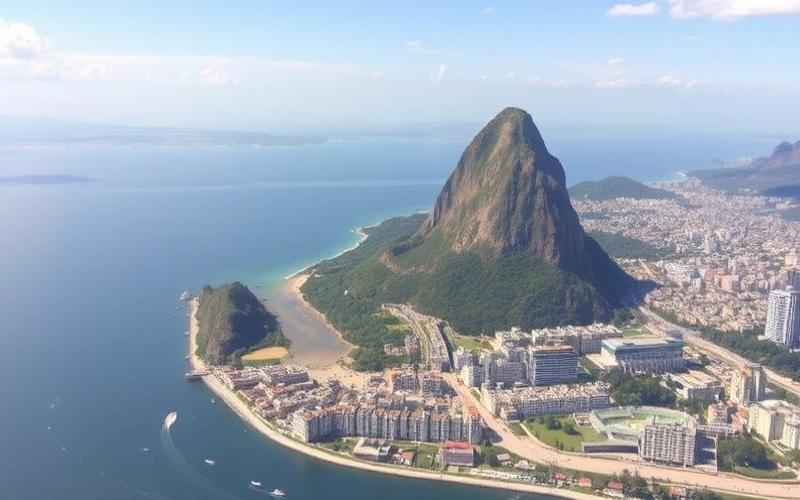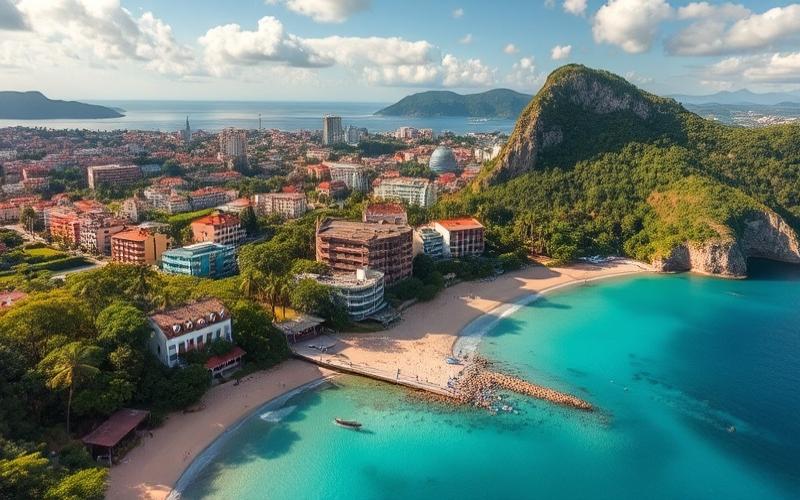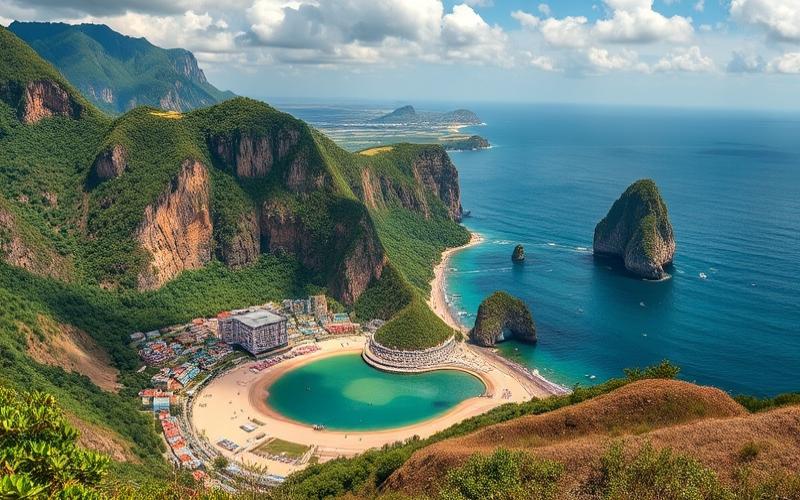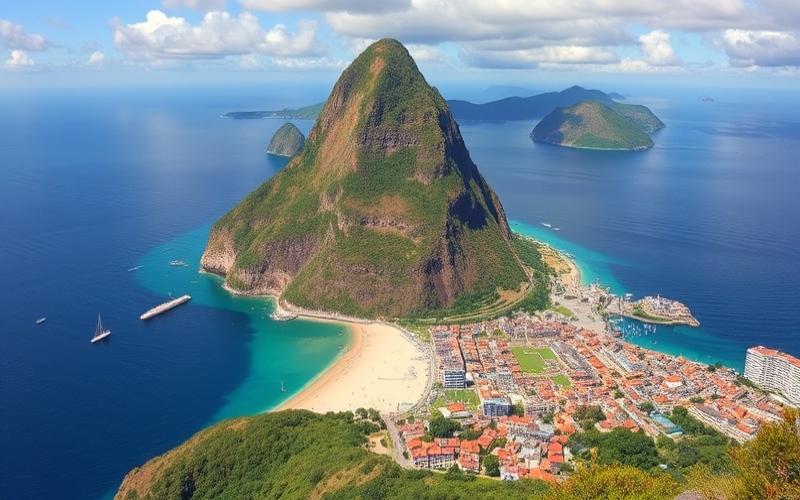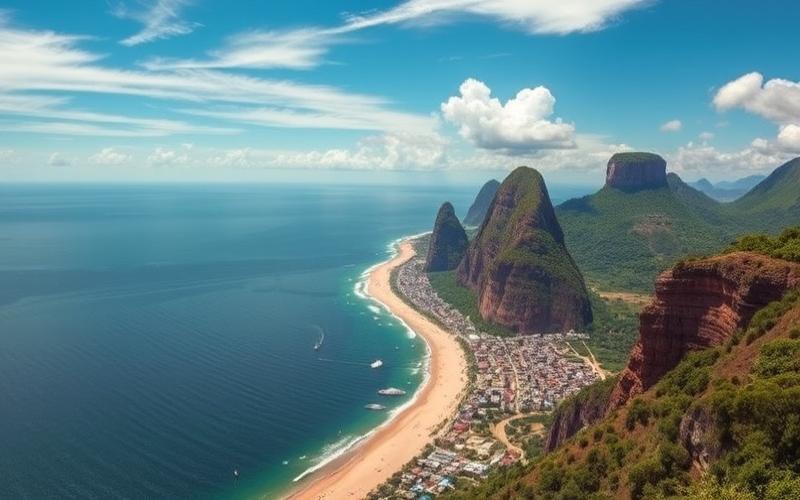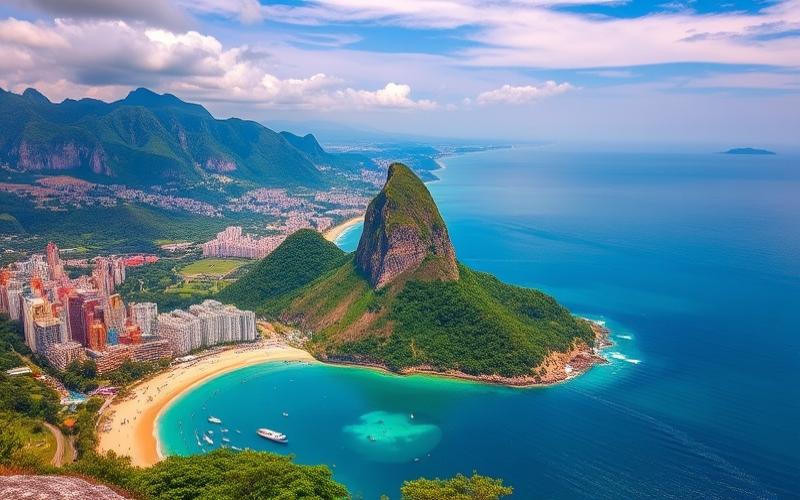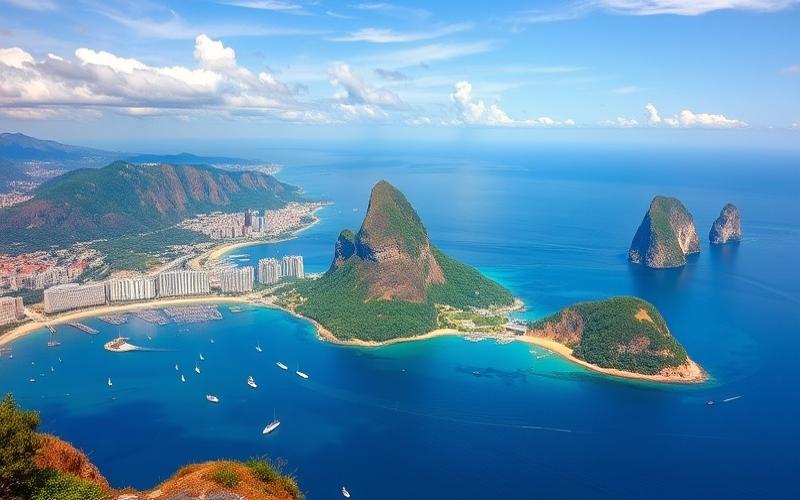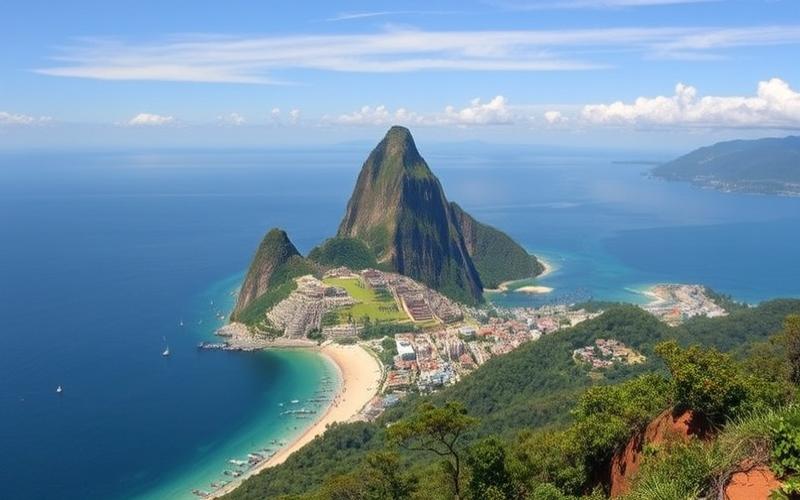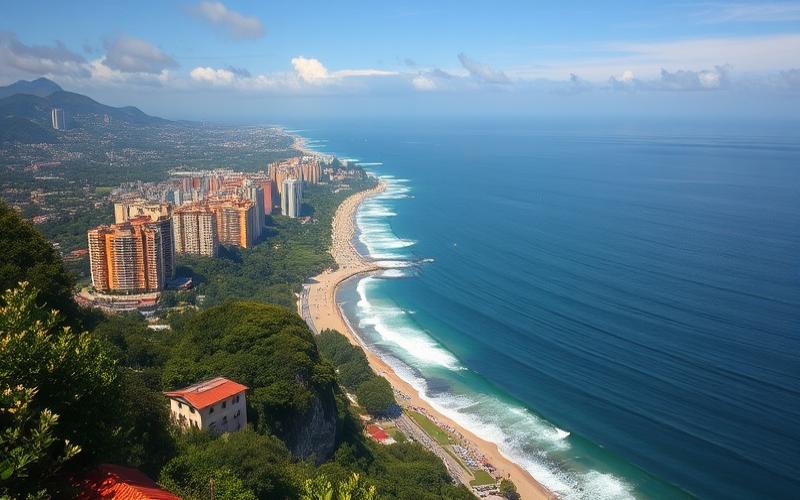
 Published on and written by Cyril Jarnias
Published on and written by Cyril Jarnias
Brazil, with its growing commitment to energy transition, is betting on the rise of electric vehicles to reduce its carbon footprint and modernize its infrastructure.
Facing environmental urgency, the Brazilian government has deployed a series of measures to encourage the adoption of these technologies, including attractive subsidies for buyers and massive support for charging infrastructure development.
These initiatives are essential to overcome the economic and logistical barriers hindering the growth of electric mobility in this vast nation.
However, challenges remain, particularly regarding the implementation of an effective and accessible charging network, raising crucial questions about the sustainability of this transition.
Steps to Benefit from Environmental Subsidies in Brazil
Government Agencies Responsible for Subsidy Distribution
- Ministry of Environment (MMA): leads environmental incentive programs, particularly within the low-carbon transition and anti-deforestation framework.
- National Bank for Economic and Social Development (BNDES): main channel for distributing the Amazon Fund and various financing mechanisms for environmental projects.
- Central Bank of Brazil (BCB) and other public financial institutions: involved in developing green finance and distributing environmental impact credits.
- Municipalities: may manage and distribute certain funds, particularly for local electrification or sustainable mobility projects.
Types of Subsidies Available for Electric Vehicles
| Subsidy Type | Description |
|---|---|
| Direct financial incentives | Reductions on purchase price, clean vehicle acquisition bonuses |
| Tax relief | Exemption from import or circulation taxes |
| Public financing | Low-interest loans, credit guarantees, infrastructure subsidies |
| Charging station installation support | Funding for setting up public/private charging stations |
Eligibility Criteria
For individuals:
- Be a Brazilian resident and adult
- Have no tax or social security debts
- Purchase of a certified 100% electric or plug-in hybrid vehicle
For businesses:
- Be registered in Brazil
- Investment project in electric fleet or charging infrastructure
- Compliance with local environmental and social standards
Application Procedure
- Verify eligibility and identify suitable program.
- Prepare application with required documents.
- Submit application online or to competent authority (BNDES, municipality, etc.).
- Track application and respond to any additional information requests.
- Receive decision and, if approved, sign agreements and receive disbursement.
Required Documents
- Identification (individuals) or company statutes
- Proof of residence or registration
- Vehicle/project quote/pro-forma invoice
- Proof of environmental compliance
- Current tax status certificate
Processing Times
Average of 2 to 6 months depending on project nature, application completeness, and processing agency workload.
Practical Tips to Increase Subsidy Approval Chances
- Prepare complete and accurate application without document omissions.
- Stay informed about project call windows and deadlines.
- Consider using specialized consulting firms or local chambers of commerce.
- Highlight project positive impacts (emission reductions, green job creation).
- Anticipate potential questions about project viability or maintenance.
Recent Legislative Changes or Regulations
- Reactivation in 2023 of Amazon Fund and development of new low-carbon transition financing mechanisms.
- Introduction of stricter ESG (environmental, social, governance) criteria for public funding approval.
- Legislative projects to extend electric vehicle purchase incentives nationwide and to corporate fleets.
Concrete Beneficiary Examples
- Several Amazon municipalities received subsidies for modernizing urban transport fleets to electric buses under the Union with Municipalities program.
- SMEs specializing in urban logistics in São Paulo obtained reduced-rate loans through BNDES for electric utility vehicle acquisition and charging station installation.
- Individuals benefited from tax exemptions on imported electric car purchases, particularly in pioneering states like São Paulo and Minas Gerais.
For any procedure, it’s strongly advised to regularly consult competent agencies’ official websites and seek personalized assistance to optimize access to environmental aid.
Good to know:
Brazil’s Ministry of Industry, Foreign Trade and Services manages electric vehicle subsidies, accessible to individuals and businesses meeting energy efficiency criteria; verify required document lists and respect submission deadlines to optimize your chances, especially following recent legislative adjustments facilitating access to these aids.
Tax Incentives for Electric Cars
Tax incentives implemented by the Brazilian government to encourage electric vehicle adoption are structured around several mechanisms, aiming to make these vehicles more accessible and stimulate industrial investment in clean technologies.
Main Tax Incentives:
- Tax reductions: Government programs like Rota 2030 and its successor Mover offer significant discounts on less polluting vehicles. The goal is to incentivize manufacturers to lower electric model prices, particularly entry-level ranges.
- Tax credits: The tax reform provides a system where any tax paid during the production chain generates automatic credit. This mechanism aims to lighten the tax burden on local production and thus promote industrial establishment.
- Exemptions or adjustments to consumption tax: The new tax model introduces dual VAT (CBS at federal level, IBS at local level) that simplifies and improves tax payment transparency. A selective tax (IS) will also apply to products deemed environmentally harmful, which could exclude or reduce taxation on electric vehicles based on their ecological impact.
Summary Table:
| Tax Mechanism | Description | Beneficiaries |
|---|---|---|
| Tax reduction | Discounts on less polluting EVs | Consumers/Industrials |
| Automatic credit | Immediate credit on production taxes | Local industrials |
| Exemption/Adapted VAT | Simplified VAT for durable goods | Consumers |
| Selective tax | Additional tax for polluting products | EVs potentially exempt |
Economic and Industrial Objectives:
- Make electric cars more affordable through direct final price reductions.
- Attract major investments in electric automotive sector with over $13 billion USD recently announced by various international groups (BYD, Volkswagen, Stellantis…).
- Promote industrial localization through minimum recycling requirements and direct financial support via Mover program.
Expected Impacts:
Economic
- Revitalization of national automotive market with expected increase in locally produced volume.
- Direct creation of industrial jobs related to new electric factories.
Environmental
Significant carbon emission reduction since transport represents nearly 43% of Brazil’s CO₂ emissions; an electrified fleet directly contributes to decreasing this total.
Recent Developments:
Progressive increase in import taxes on hybrid and electric imported vehicles (up to 35% by July 2026), to further encourage local assembly and strengthen national industrial chain.
List of Potential Impacts Related to Legislative Changes:
- Acceleration of technology transfer to Brazil.
- Mandatory strengthening of minimum recycled parts rate in each produced vehicle.
These measures converge toward a market where electric cars gradually become competitive against traditional models while accelerating the ecological transition expected by the Brazilian government.
Good to know:
Brazil offers tax reductions and credits for electric vehicles, aiming to stimulate their adoption and reduce emissions; recent increases in these incentives could accelerate the shift toward greener technologies.
Development of Charging Station Infrastructure in Brazil
Current State of Brazil’s Charging Station Network
Over 4,200 public and semi-public charging points were recorded in July 2025, with strong acceleration in the country’s South and Northeast regions.
- The state of Santa Catarina doubled its network in one year.
- Cities of Recife and Salvador integrate charging stations in shopping malls, universities, and public buildings.
- Significant development of DC fast chargers, allowing battery charging up to 80% in under 30 minutes.
| Region/City | Notable Progress | Charger Type |
|---|---|---|
| Santa Catarina | Network doubled in one year | Fast and standard |
| Recife/Salvador | Integration in public places | Fast and standard |
| Rio de Janeiro | First public fast charger (500 kW) | Fast charging (6 spots) |
Main Ongoing Projects and Initiatives
- BYD plans over 150 public fast chargers at its dealerships by end of 2025, accessible to all EV drivers.
- Shell/Raizen accelerates development of fast charging corridors on strategic routes, facilitating long-distance travel between Brazil, Argentina, Chile, and Uruguay.
- Laneshift and Sandbox.Rio program support innovative technology experimentation in Rio, with creation of public fast chargers.
Public-Private Collaborations
- Partnerships between energy companies (Neoenergia, CPFL), automakers (BYD), and local authorities for co-financing and infrastructure deployment.
- Public authority support through pilot programs and tax incentives.
- Use of connected applications (e.g. BYD Recharge app) to optimize user experience and charger management.
Technical and Logistical Challenges
- Electrical grid availability: need to increase transmission capacity and stability to support fast charger growth.
- Strategic location: still too few chargers on some long-distance routes or in rural areas.
- High installation costs and regulatory variability between federal states.
- Need for connector standardization and interoperability between charging networks.
Future Perspectives and Impact on EV Adoption
- Brazil is expected to reach historic figures in 2025, with over 150,000 electrified vehicles sold during the year.
- Rapid infrastructure expansion supports market growth and positions Brazil as strategic electromobility hub in Latin America.
- Projections indicate network consolidation, increased local component production (batteries, management systems), and better coverage of major national routes.
- Future challenges include maintaining expansion pace, sustainability of tax incentives, and scaling up local industrial sector.
Key Data
| Indicator | Value (2025) |
|---|---|
| Public/semi-public charging points | > 4,200 |
| Planned BYD fast chargers | > 150 |
| Expected EV sales (2025) | > 150,000 units |
| Energy delivered by BYD (to date) | 1,435,000 kWh |
| CO₂ avoided through BYD chargers | 215 tons |
| Shell/Raizen corridor (2024) | 1,200 km equipped |
Visual Summary of Challenges and Levers
Challenges:
- Electrical grid capacity
- Uneven national coverage
- Cost and regulation
- Technical standardization
Levers:
- Public-private partnerships
- Digital innovations (applications, remote supervision)
- Fast charging corridor deployment
- Tax incentives and local production
Brazil now has a network of over 4,200 charging stations, supported by multiple public and private initiatives, enabling it to envision strong electric mobility growth and a regional leadership position.
Good to know:
Brazil’s charging station network currently includes approximately 1,500 stations, with several ambitious projects seeking to increase this number to 10,000 by 2025, particularly through government partnerships with companies like EDP and Enel; however, challenges such as inadequate energy infrastructure and high installation costs may hinder this rapid expansion.
Disclaimer: The information provided on this website is for informational purposes only and does not constitute financial, legal, or professional advice. We encourage you to consult qualified experts before making any investment, real estate, or expatriation decisions. Although we strive to maintain up-to-date and accurate information, we do not guarantee the completeness, accuracy, or timeliness of the proposed content. As investment and expatriation involve risks, we disclaim any liability for potential losses or damages arising from the use of this site. Your use of this site confirms your acceptance of these terms and your understanding of the associated risks.

